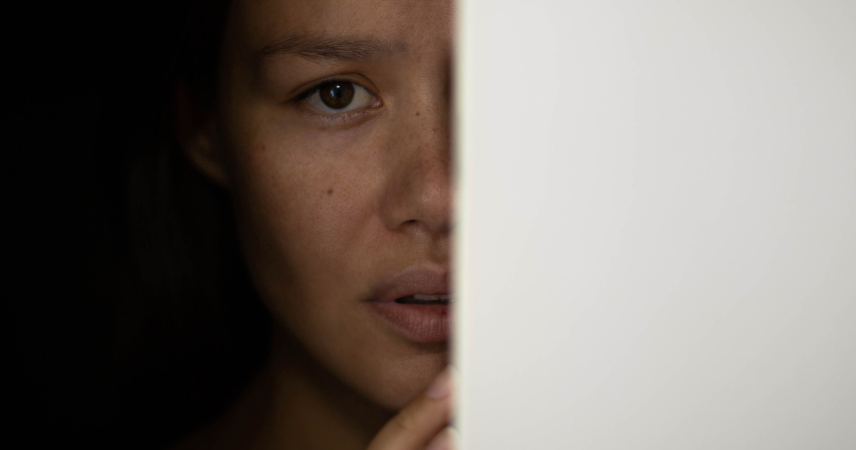In the Closet Meaning – And We’re Not Talking Clothes

LGBTQ Closet Living
For the LGBTQ+ community, being in the closet means hiding sexual orientation or gender identity from individuals or groups of people – family members, fellow students, co-workers, and more. And for those who remain closeted, it often means leading a double life, with all of the negative mental health issues and emotional anxiety that come with that. Life in the closet becomes extremely difficult. It’s not pretty.
Why LGBT People Choose to Stay in the Closet
Even with the far more open and accepting attitudes of society toward the LGBTQ community, and even laws that reflect a sense of that acceptance, all is not perfect for a person in the closet. Laws do not necessarily reflect society as a whole, and the most important thing is that discrimination remains. Consider these examples of issues that the LGBTQ+ community still faces.
Workplace Discrimination is Real
Sometimes this is subtle; sometimes it’s quite open. Yes, it’s against many laws to discriminate against people for their identity, but it still happens, even as a matter of public policy. The most famous example is The Trump Administration’s Transgender Military Ban – American Oversight, banning trans people from military service. If Trump could engage in such public workplace discrimination, then others in private industries believe they have the right to do the same. While business owners may not have policies against non-traditional sexuality, they can still decide to make life very uncomfortable for those who are open about their gay life, their sexual orientation, or their gender identity. No one wants to be miserable on the job. And so, they stay in the closet. And staying in closets increases their anxiety, fearing someone may disclose their gender identity or at least have suspicion and begin rumors. There is a cost to their mental health. Non-hetero genders are still
Personal Life Can Be Damaged
Others have concerns or fear in their personal lives and so decide to remain closeted. Typical problems are the worry about family support or straight friends who may not want relationships with gay, lesbian trans, or bisexual people. Other issues may be a relationship with groups or organizations that accept only heterosexual identity, such as a church, sports teams, or school clubs. Announcing a sexual identity other than heterosexual can result in rejection.
Closeted people are afraid of dating openly or even attending a pride event for fear they might be seen or filmed.
The Current Political Climate
Queer people can also worry about the current political climate. A recent report from the Southern Poverty Law Center (SLPC) had this to say: “Groups that vilify the LGBTQ community, represented the fastest-growing sector among hate groups in 2019.” This report goes on to say that the increase is the result of a growing number of conservative politicians in public office who are openly making anti-LBGTQ statements and accepting support even from groups that promote hate crimes. Many of the anti-gay groups have religious affiliations and even typify gay men as child predators and a queer woman as a “groomer.”
And hospitals affiliated with conservative religious organizations may treat their gay patients differently, and this becomes an issue of fully equal access to health care. In this environment, it is no surprise that a closeted person may choose to remain where they are. In America where all are supposed to be equal, this is clearly not the case. Every anti-LGBTQ act of a state legislature serves to keep queers in the closet even more.
Refer to this site for details – over 500 pieces of legislation have been proposed and/or passed in 2023.
Career Professionals’ Reputations
LGBT people also choose to remain in the closet for career reasons. Doctors, lawyers, accountants, and other self-employed career professionals fear that openly revealing their sexual orientation may mean rejection by those clients who disapprove of homosexuality. This can mean loss of business for such a person and will certainly hit them in the pocketbook. What goes on in their bedroom must never see the light of day.
The one exception here appears to be those queers who enjoy celebrity status – actors, musicians, and national sports figures combined make up a group of people who are able to come out of the closet and maintain their careers.
Mental Health Costs of Remaining Closeted
Lesbians, gay men, bisexuals, trans people, and any other person with a non-traditional sex life belong to a minority group anywhere in the world. Minorities of any type are subject to unequal treatment, but the LGBTQ community perhaps suffers from more hate and scorn than most others. This can cause a host of mental health issues, such as depression, stress, and even self-hate. It is also important to remember that there is a higher percentage of drug abuse and other risky behaviors within the LGBTQ community than within other minority groups. This is especially true when members do not have a support system from their families, friends, and university or work colleagues.
Two psychiatrists, Jack Drescher and Matthew Fadus recently wrote an article on what they call “minority stress” of SGM (sexual and gender minorities) that goes beyond common stressors of most minority groups. Here are the points these authors make:
- First, they are more stigmatized because of their sexuality
- second, anti-LGBTQ attitudes can exist within their own families who they must live with day and night
- third, their responses to their own sexual behavior can lead to self-hate because they live in a society that insists it is wrong, immoral, or sinful.
To quote these two authors and the science clinical studies and articles they summarize, “Chronic stress among LGBTQ individuals can lead to increased risk of substance use disorders, depression, anxiety, suicide, and self-harm among other mental health issues. Closeted gay, lesbian, bi, and trans people who remain that way suffer from all of the above stressors but with the additional burden of hiding their true identity and the constant fear of being “outed.”
Life is spent trying to look and identify as a heterosexual person in their social and physical environments and then “sneaking” into secret and sometimes unsafe environments where they can “live” a life they really want and need. And according to the psychiatrists above, this dual life can be disastrous. 30% of homeless young people are LGBTQ, and the suicide rate among gay, lesbian, bisexual, trans, and queer men and women is twice that of those who identify as heterosexuals and lead sexually “normal” lives.
Staying in the closet can result in true physical harm, even death. And there are plenty of examples to go around.
Coming Out of the Closet Has Different Meanings
“The true ugliness of the closet is its subtlety. It eats away at your soul bit by bit and you don’t even realize it. If you never deal with it or come to terms with it, then ultimately the closet will destroy you.” This quote from writer Gar McVey-Russell in his book, Sin Against the Race pretty much says it all. Although a piece of fiction, it is one of the most basic books that deal with the identity concerns and struggles of the LGBTQ community.
If you are struggling with important aspects of your self-awareness or if you are self-aware but in the closet, then you should know that there are steps or levels of coming out. You don’t have to do this all at once to everyone, in every environment, and within every relationship you now have.
Let’s unpack these steps/levels.
- The first and obvious step for coming out of the closet is to admit to yourself that you have feelings and attractions that involve homosexuality, bisexuality, transgender leanings, etc. This part of coming out is known as coming out to yourself. Once you have done this, you are in the closet and must determine the next steps to take.
- You can keep your self-identification secret, in other words, stay in the closet, talk to no one else about this, and risk the mental health issues that may come. Or you can come out of the closet to others you know who are gays, lesbians, bi’s, or others. This will give you at least one person to speak to and to get advice from. You can benefit from their experiences of coming out.
- You can locate LGBTQ publications and online forums, thus coming out of the closet to groups of people who share their lives and serve as examples. This gives you validation and an outlet for honest discussion.
- You are still closeted from important others in your life – family, maybe a close sister, straight friendships, a university roommate, or close others. How do you come out of the closet to them? This can be tricky, and you may have to be selective at first. But this, too, can come in small sub-steps, starting with those who will be accepting and who will keep your secret, and your need to stay in the closet, for the time being. This step will also give you practice for coming out of the closet to others at a time you choose to be right.
- This is the bigger step. You are now deciding when and how you will come out of the closet to others in your life – family members, other relatives, and long-term relationships, as examples. Here is what you have to remember: you get to choose when, how, and who you come out of the closet to. In fact, for many members of the LGBTQ community, coming out of the closet can last a lifetime.
You don’t owe anyone an explanation about your personal life. Your sexual identity, behavior, and openness are totally up to you. And so is coming out of the closet in the phases you choose.
Taking a Look at Famous Coming Out Examples
In recent years, formerly closeted celebrities and athletes have made very public announcements about their homosexuality. These include such people as:
- Demi Lovato: “Today is a day I’m so happy to share more of my life with you all- I am proud to let you know that I identify as non-binary & will officially be changing my pronouns to they/them moving forward.” This on Twitter from a young woman who is an icon in the contemporary music world.
- Ryan O’Callaghan: This football great played in the NFL for six seasons before retiring in 2011. He did not come out of the closet until 2017. In an interview with NBC News, he said, “My whole plan was to play football and kill myself. I was convinced from a young age that my family would never love me if they knew who I really was. If you have a closeted kid, he hears every one of those times you say something (anti-gay). It sticks with him.” It was through therapy that a psychologist got him to come out to his parents. They completely accepted him. Once that happened, he came out to the public.
- Raven-Symone: This actress, singer, and songwriter came out as gay many years ago. Since that time, she has been a big promoter of gay rights, especially legal recognition of gay marriage. Once gay marriage became legal, she posted on Twitter, “I can finally get married. Yay government. So proud of you.”
- On June 26, 2015, the Supreme Court of America. ruled that gay marriage would be legal in all 50 states. The response on Twitter was cast in one now-famous quote – “Love Wins!” One of the most famous brands to celebrate this victory was Ben and Jerry’s with a great tweet and video of support for the LGBTQ community. It should be a reminder that coming out of the closet is becoming easier now.
Many men, women, and plenty of others in the LGBTQ community feel they don’t have to hide their sexual orientation anymore, even if they are not celebrities. Sometimes, this is a factor of where they live. Two men, for example, who love one another, need not hide that love if they live in San Francisco. Two women living in a small town in the deep South, though, may have to confine their lesbianism to the bedroom and stay in the closet everywhere else. They may even have to create their own love language to communicate by phone, email, messaging, or on social media. How sad.
What’s Next for You?
The goal of this discussion was two-fold: 1. to speak to our readers about the ups and downs of coming out and the risks of both coming out and staying in the closet, and 2. to show that coming out can and probably should be something you do in steps. Let’s recap.
The Ups of Coming Out of the Closet
The biggest “up” is the emotional relief you will feel once you are no longer “living a lie.” But in addition, once you have decided to pursue your sexual preferences, you will be able to “hook up” with others like you, at least in a digital environment, until you find those others within your geographic setting. Universities, and even some high schools, now have LGBTQ organizations that provide support within a healthy social setting.
The Downs of Coming Out
You may lose people who cannot accept who you are. This may include family members, relatives, and friends you have held close. Just the idea of this is painful.
Take Your Time
If you take away one best piece of advice, let it be this. Coming out of the closet is a process, not a one-shot deal. It’s one thing for a celebrity to come out to the world via a television interview or Twitter. It’s another thing for you. Elton John, for example, had his musical genius, and many other gay celebrities applauded and celebrated his coming out. You might not have that luxury. Find the method that is most comfortable for you, be flexible as you follow that process, and, above all, use the examples of others as a reference, and take all of the support that is offered.



